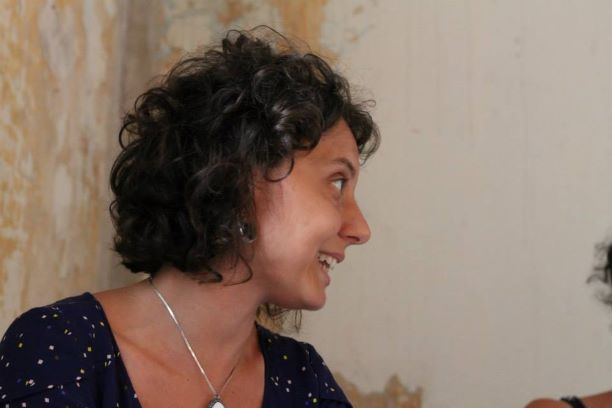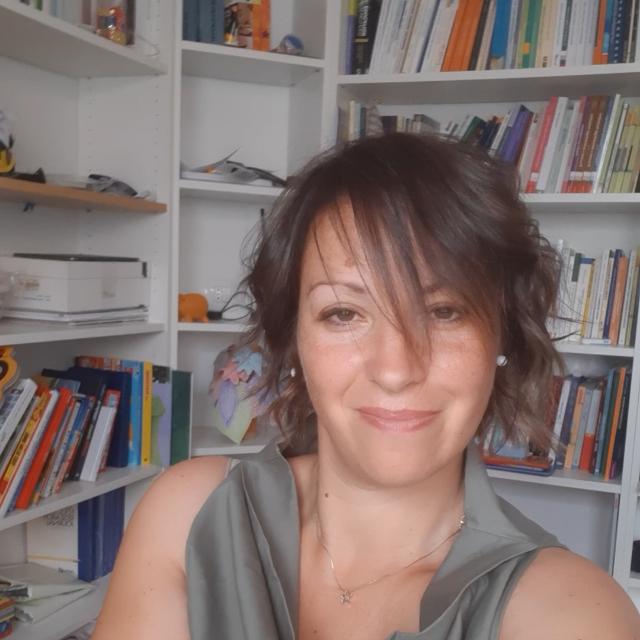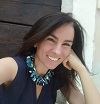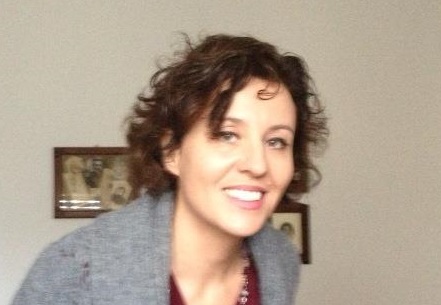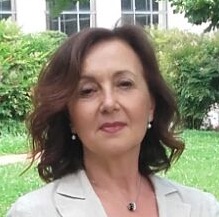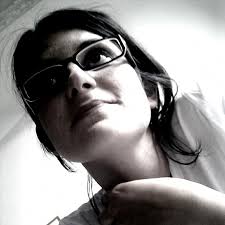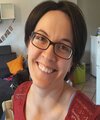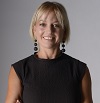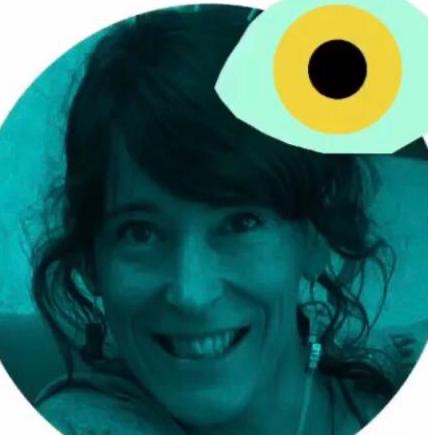Studying at the University of Verona
Here you can find information on the organisational aspects of the Programme, lecture timetables, learning activities and useful contact details for your time at the University, from enrolment to graduation.
Academic calendar
The academic calendar shows the deadlines and scheduled events that are relevant to students, teaching and technical-administrative staff of the University. Public holidays and University closures are also indicated. The academic year normally begins on 1 October each year and ends on 30 September of the following year.
Course calendar
The Academic Calendar sets out the degree programme lecture and exam timetables, as well as the relevant university closure dates..
| Period | From | To |
|---|---|---|
| Sem. 1A | Sep 23, 2019 | Oct 31, 2019 |
| Sem. 1B | Nov 11, 2019 | Jan 11, 2020 |
| Sem. 2A | Feb 17, 2020 | Mar 28, 2020 |
| Sem. 2B | Apr 6, 2020 | May 30, 2020 |
| Session | From | To |
|---|---|---|
| Sessione d'esame invernale | Jan 13, 2020 | Feb 15, 2020 |
| Sessione d'esame estiva | Jun 3, 2020 | Jul 25, 2020 |
| Sessione d'esame autunnale | Aug 24, 2020 | Sep 19, 2020 |
| Session | From | To |
|---|---|---|
| Sessione di laurea estiva | Jul 6, 2020 | Jul 11, 2020 |
| Sessione di laurea autunnale | Nov 2, 2020 | Nov 6, 2020 |
| Sessione di laurea invernale | Apr 7, 2021 | Apr 13, 2021 |
| Period | From | To |
|---|---|---|
| Festa di Ognissanti | Nov 1, 2019 | Nov 1, 2019 |
| Chiusura Ateneo | Nov 2, 2019 | Nov 2, 2019 |
| Festa dell'Immacolata | Dec 8, 2019 | Dec 8, 2019 |
| Vacanze di Natale | Dec 23, 2019 | Jan 6, 2020 |
| Vacanze di Pasqua | Apr 10, 2020 | Apr 14, 2020 |
| Festa della liberazione | Apr 25, 2020 | Apr 25, 2020 |
| Festa del lavoro | May 1, 2020 | May 1, 2020 |
| Sospensione delle lezioni | May 2, 2020 | May 2, 2020 |
| Festa del Santo Patrono | May 21, 2020 | May 21, 2020 |
| Sospensione delle lezioni | May 22, 2020 | May 23, 2020 |
| Festa della Repubblica | Jun 2, 2020 | Jun 2, 2020 |
| Vacanze estive | Aug 10, 2020 | Aug 15, 2020 |
Exam calendar
Exam dates and rounds are managed by the relevant Humanistic Studies Teaching and Student Services Unit.
To view all the exam sessions available, please use the Exam dashboard on ESSE3.
If you forgot your login details or have problems logging in, please contact the relevant IT HelpDesk, or check the login details recovery web page.
Should you have any doubts or questions, please check the Enrollment FAQs
Academic staff
 marialivia.alga@univr.it
marialivia.alga@univr.it
 erika.branchini@univr.it; erika.branchini@gmail.com
erika.branchini@univr.it; erika.branchini@gmail.com
 simona.carta@univr.it
simona.carta@univr.it
 marialuisa.costantino@univr.it
marialuisa.costantino@univr.it
 donato.desilvestri@univr.it
donato.desilvestri@univr.it
 laura.fontecedro@univr.it
laura.fontecedro@univr.it
Ganzerla Luca Giovanni Michelangelo
 lucagiovanni.ganzerla@univr.it
lucagiovanni.ganzerla@univr.it
 licia.landi@univr.it
licia.landi@univr.it

Migliorati Lorenzo
 lorenzo.migliorati@univr.it
lorenzo.migliorati@univr.it
 045802 8135
045802 8135
 maria.mori@univr.it
maria.mori@univr.it
 luca.odini@univr.it
luca.odini@univr.it
 alessandro.ongaro@univr.it
alessandro.ongaro@univr.it
 pieralberto.porcedducilione@univr.it; pierre_pordd@yahoo.it
pieralberto.porcedducilione@univr.it; pierre_pordd@yahoo.it
 045 8028732
045 8028732
 sara.riggio@gmail.com
sara.riggio@gmail.com
 mirela.tingire@univr.it
mirela.tingire@univr.it
 rosanna.vit@univr.it
rosanna.vit@univr.it
 barbara.zoccatelli@unitn.it
barbara.zoccatelli@unitn.it
Study Plan
The Study Plan includes all modules, teaching and learning activities that each student will need to undertake during their time at the University.
Please select your Study Plan based on your enrollment year.
1° Year
| Modules | Credits | TAF | SSD |
|---|
2° Year activated in the A.Y. 2020/2021
| Modules | Credits | TAF | SSD |
|---|
3° Year activated in the A.Y. 2021/2022
| Modules | Credits | TAF | SSD |
|---|
| Modules | Credits | TAF | SSD |
|---|
| Modules | Credits | TAF | SSD |
|---|
| Modules | Credits | TAF | SSD |
|---|
| Modules | Credits | TAF | SSD |
|---|
Legend | Type of training activity (TTA)
TAF (Type of Educational Activity) All courses and activities are classified into different types of educational activities, indicated by a letter.
Education in the ages of life - LABORATORIO DI PEDAGOGIA DEL CICLO DI VITA (2020/2021)
Teaching code
4S008154
Credits
1
Coordinator
Not yet assigned
Language
Italian
Scientific Disciplinary Sector (SSD)
M-PED/01 - PEDAGOGY, THEORIES OF EDUCATION AND SOCIAL EDUCATION
To show the organization of the course that includes this module, follow this link: Course organization
The teaching is organized as follows:
LABORATORIO DI PEDAGOGIA DEL CICLO DI VITA [Gruppo A]
LABORATORIO DI PEDAGOGIA DEL CICLO DI VITA [Gruppo B]
LABORATORIO DI PEDAGOGIA DEL CICLO DI VITA [Gruppo C]
Learning outcomes
Knowledge and understanding
1. Know the main elements that characterize the complexity of adult life and the theories that deepen its meaning from a behavioral, psychological and existential point of view.
2. Know and understand the evolutionary dimension,also present in adulthood, and the possibility of its taking shape in the direction of an ever greater awareness of the meaning of one's social role and one's existential task, also in relation to other ages of life.
3. Understand the problematic nature of the experiences that underlie the situations of crisis, discomfort, marginalization and deviance, which characterize the existential personal experiences of young people and adults. Identification, in these cases, of the most appropriate educational intervention methods.
Ability to apply knowledge and understanding
1. Apply the knowledge learned from the literature and related to specific problems on adult life, in order to help develop educational projects that are adequately contextualized and close to common experiences.
2. Formulate educational methods of dialogue with adults, according to methods and projects that respect the desire of adults for a conscious learning and respectful of their own history and experience of reality.
3. Formulate educational projects and interventions aimed at strengthening the essential elements for reactivating the process of recovery and development of one's life path, which characterizes adulthood, from the young to the elderly.
Program
LABORATORY (GROUP A), prof.ssa M. TINGIRE
The laboratory, associated with the Adult Education Module is proposed as an interactive space for experimentation and implementation of appropriate educational strategies and interventions starting from the needs and concrete experiences of the students involved and from the particular situations faced in personal and professional life.
The laboratory aims to:
• To experiment and implement educational methods concerning life skills in the context of adult education, in the perspective of learning throughout the life span (Life skills and lifelong learning).
• Identify and use appropriate educational strategies in working with adults who, in a certain period of their life, due to particular events experienced or suffered, may feel a sense of loss and lack of meaning in their life.
• Interpret and apply the roles and skills of the educator in concrete situations of work with adults.
The teaching methods of teaching concern the following settings, which will take place according to the needs related to the development of the program:
• The interactive lesson, (slide, powerpoint);
• Role playing;
• Exercises in small groups (project work);
• Cooperative learning;
• Viewing and interpreting film clips;
• The lesson in "e-learning" mode; if necessary, the e-learning platform of the University will be used;
• Participatory evaluation of the laboratory.
Online teaching material:
• At the beginning and during the laboratory, the teacher will make the teaching material of the proposed activities available to students, available and available for consultation in the online environment dedicated to teaching on the University platform.
LABORATORIES (GROUPS B and C), prof.sa F. RAPANÀ
The Laboratory aims to offer students a time for reflection and discussion on the educational aspects of working with adults through video materials, interviews, narrative and autobiographical writings.
Through an interactive and experiential approach, the following themes will be addressed:
- adult education: areas of educational intervention
- the educator and adults: relational aspects
- complexity and typicality in adult education
- Educational work with adults in situations of marginality: methods and tools
Examination Methods
LABORATORY (GROUP A), prof.ssa M. TINGIRE
The exam consists in the presentation of a project and / or a testimony regarding the individual and group topics proposed during the workshop and to be agreed with the teacher.
Contents:
• Topics covered during the Workshop, the Adult Education Course and in the texts in the program.
Methods of evaluating the exam and composing the final score
• The evaluation of the examination tests, relating to the three modules that make up the teaching of Education in the ages of life, will take place in the same way, that is, by articulating the score on the basis of four levels of judgment: Sufficient - Fair - Good - Excellent.
• The score out of thirty will be distributed in proportion to the number of credits attributed to each module, as follows:
- Adult education (6 credits): max. 21 points out of 30 (Suff. 18; Disc. 19; Good 20; Excellent 21).
- Pedagogy of the life cycle (2 credits): max. 6 points out of 30 (Suff. 3; Disc. 4; Good 5; Excellent 6).
- Life cycle pedagogy workshop: (1 cfu): max. 3 points out of 30 (Suff. 0.5; Disc. 1; Good 2; Excellent 3).
• The final exam score will arise from the sum of the scores acquired in the three modules that make up the course.
LABORATORIES (GROUPS B and C), prof.sa F. RAPANÀ
Writing of a written paper that will be discussed in an oral examination.
The paper should develop one of the following tracks (more details will be provided during the Workshop):
1. Working with adults: areas of educational intervention (e.g. mapping services in the area);
2. Resources and challenges of being an adult educator among adults (e.g. structured reflection on pedagogical and educational challenges in working with adults);
3. The adult in situations of marginality (e.g., drafting an educational project);
4. Methods and tools (e.g., analysis of an educational experience or autobiographical text).
Methods of evaluating the exam and composing the final score
• The final exam score will result from the sum of the scores acquired in the three modules, distributed among the three modules in proportion to the number of credits attributed to each module.
• The evaluation of the three exams will take place in the same way, that is, by articulating the score on the basis of four levels of judgment: Sufficient - Fair - Good - Excellent, as follows:
─ Adult education (6 credits): 21 points out of 30 (Suff. 18; Disc. 19; Good 20; Excellent 21).
─ Pedagogy of the life cycle (2 credits): 6 points out of 30 (Suff. 3; Disc. 4; Good 5; Excellent 6).
─ Laboratory of pedagogy of the life cycle: (1 credits): 3 points out of 30 (Suff. 0,5; Disc. 1; Good 2; Excellent 3).
Type D and Type F activities
Modules not yet included
Career prospects
Module/Programme news
News for students
There you will find information, resources and services useful during your time at the University (Student’s exam record, your study plan on ESSE3, Distance Learning courses, university email account, office forms, administrative procedures, etc.). You can log into MyUnivr with your GIA login details: only in this way will you be able to receive notification of all the notices from your teachers and your secretariat via email and soon also via the Univr app.
Graduation
Documents
| Title | Info File |
|---|---|
|
|
pdf, it, 99 KB, 13/10/23 |
|
|
pdf, it, 101 KB, 10/04/24 |
List of theses and work experience proposals
| theses proposals | Research area |
|---|---|
| Ambienti e contesti di lavoro con minori | Various topics |
| Analisi dei personal network di sostegno | Various topics |
| comunicazioni relative alla tesi | Various topics |
| Il teatro come contesto educativo | Various topics |
| I processi di globalizzazione culturale nella società contemporanea | Various topics |
| La social network analysis applicata allo studio dei contesti educativi | Various topics |
| L'educatore ed i progetti europei | Various topics |
| L'impegno associativo in ambito educativo | Various topics |
| Politiche sociali e contesti educativi | Various topics |
| Progetti di collaborazione con le istituzioni scolastiche | Various topics |
| PROPOSTE TESI AMBITO GEOGRAFICO | Various topics |
| Scuola e capitale sociale | Various topics |
Linguistic training CLA
Gestione carriere
Student mentoring
Practical information for students
Documents
| Title | Info File |
|---|---|
|
|
pdf, it, 325 KB, 02/05/23 |
|
|
pdf, it, 212 KB, 02/05/23 |
|
|
pdf, it, 131 KB, 02/05/23 |
Stage e Tirocini
Le ulteriori attività formative (crediti F) sono interamente coperte dall’attività di tirocinio “indiretto” (1 cfu) da svolgersi nel secondo anno e di tirocinio “diretto” (14 cfu) da svolgersi presso enti convenzionati per un numero complessivo di 15 cfu (375 ore). Chi è iscritta/o al curriculum servizi per l’infanzia è tenuta/o a svolgere il tirocinio presso nidi e servizi per la prima infanzia per almeno il 50% delle ore.
Il tirocinio professionalizzante (375 ore, pari a 15 cfu), è obbligatorio sia nella sua forma diretta che indiretta.
Il tirocinio indiretto, della durata di 25 ore a frequenza obbligatoria al 75%, si svolge in Università per 20 ore e in forma di lavoro individuale per 5 ore e consiste in un accompagnamento iniziale delle/degli studenti da parte dei tutor attraverso un percorso formativo dotandoli di conoscenze e strumenti adeguati a osservare, comprendere e rielaborare criticamente l’esperienza di tirocinio nei servizi educativi e ad affrontare il tirocinio negli enti con metodo e consapevolezza. Il percorso, da attuare in gruppi da 20-25 persone sotto la supervisione di un tutor, risponde alle esigenze costantemente espresse sia dalle/dagli studenti stessi sia dalle parti sociali che dai referenti degli enti convenzionati.
Il tirocinio diretto si propone di raggiungere i seguenti obiettivi:
- fare esperienza diretta di attività professionali, che richiedono un livello di preparazione al lavoro educativo;
- approfondire in particolare il rapporto tra preparazione teorica, acquisita mediante lo studio, ed esperienza pratica, tra mondo del sapere e della cultura e mondo del lavoro e delle professioni;
Al termine del tirocinio diretto lo studente deve presentare una relazione scritta, nella modalità concordata con il tutor accademico.
Nuove Linee Guida per il tirocinio di Scienze dell'educazione.
- Tutte le informazioni in merito agli stage per futuri studenti sono disponibili alla pagina Stage e tirocini.
- Tutte le informazioni in merito agli stage per studenti iscritti sono pubblicate in MyUnivr - come fare per - stage e tirocini.
- Tutte le informazioni in merito agli stage per le aziende sono disponili alla pagina Stage e tirocini per azienze.
Documents
| Title | Info File |
|---|---|
|
|
pdf, it, 302 KB, 16/07/21 |
